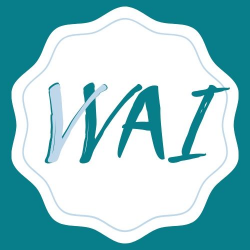Published: July 13th 2021 – Last revision: July 13th 2021
In 2015, all member states of the United Nations adopted the 2030 Agenda for Sustainable Development, with the goal of achieving peace and prosperity for all people on the planet. The agenda sets out 17 sustainable development goals (SDGs). These goals call on countries to take action to end poverty and other deprivations through strategies that improve health and education, reduce inequality and stimulate economic growth, all without negatively impacting climate change and while preserving our planet. Achieving these goals is a challenge for our society. After several years working on AI for social good, our group has identified specific computational challenges, both in optimization and machine learning, that arise in application areas related to goals of the 2030 Agenda. We aim to address these challenges by advancing the state of the art in algorithmic aspects. This will be necessary because the optimization problems that arise in these application areas are large-scale problems that often cannot be solved with currently available heuristic and exact approaches.
Indeed, we plan to advance the state of the art along the following three lines. First, to contribute to the adaptation of metaheuristics for application to large-scale problems. Second, to advance the combination of heuristic techniques with algorithmic ideas from operations research. Thirdly, to contribute to a novel research field, such as the support of optimization algorithms to machine learning techniques. The aim of the project is to demonstrate that the computational advances achieved allow improvement over the state of the art in application areas that are aligned with some SDGs of the UN 2030 Agenda for Sustainable Development. In particular, we will address the following areas: (1) Peer-to-peer travel sharing (in relation to SDG 11: Sustainable cities and communities); (2) Team building (in relation to SGD 4: Quality education); (3) Increasing energy responsibility of children (in relation to SGD 4: Quality education); (4) Smart health systems (in relation to SGD 3: Health and well-being).
More information is available at the CI-SUSTAIN webpage.
Contributors
Universitat de Barcelona
IIIA – CSIC
Related Publications
The full list of publications and contributions is available at the CI-SUSTAIN webpage.
Guaranteeing the Learning of Ethical Behaviour through Multi-Objective Reinforcement Learning.
Manel Rodríguez Soto, Maite López-Sánchez, & Juan A. Rodríguez-Aguilar (2021). Guaranteeing the Learning of Ethical Behaviour through Multi-Objective Reinforcement Learning. Adaptive and Learning Agents Workshop at AAMAS 2021 (ALA 2021). BibTeX
Multi-Objective Reinforcement Learning for Designing Ethical Environments.
Manel Rodríguez Soto, Maite López-Sánchez, & Juan A. Rodríguez-Aguilar (2021). Multi-Objective Reinforcement Learning for Designing Ethical Environments. Proceedings of the 30th International Joint Conference on Artificial Intelligence, (IJCAI-21) (pp. in-press). BibTeX
A model to support collective reasoning: Formalization, analysis and computational assessment.
Jordi Ganzer, Natalia Criado, Maite Lopez-Sanchez, Simon Parsons, & Juan A. Rodríguez-Aguilar (2020). A model to support collective reasoning: Formalization, analysis and computational assessment. arXiv preprint arXiv:2007.06850. BibTeX
Founding

